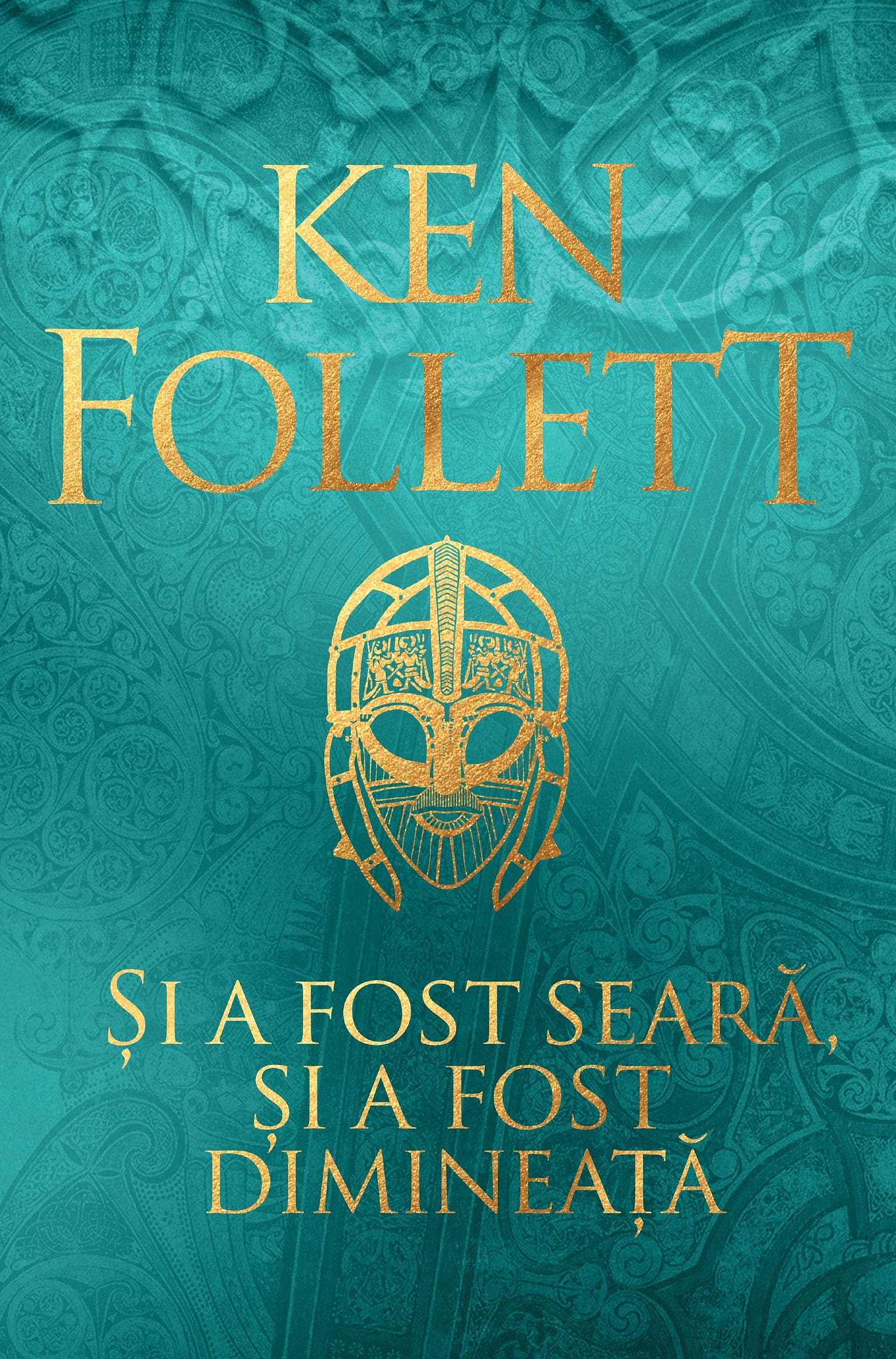“The Evening and the Morning”, by Ken Follett, is the prequel to the Kingsbridge series. It’s also, strangely, the highest rated book in the series, which I did not expect, but am pleasantly surprised by.
I have not yet read the Kingsbridge series (though I watched the “Pillars of the Earth” miniseries a long time ago), and in choosing to read “The Evening and the Morning” I did something I seldom (almost never) do: I didn’t read in publication order.
Normally, I prefer publication order because it gives me an insight into the author’s mind. It gives me an idea of the order in which the events/ideas were born rather than the chronological order in which they occurred in-universe. But I simply couldn’t resist this book.
The cover drew my attention from the start. Green, with wonderful yellow lettering and something about Vikings in the blurb. VIKINGS! I could never resist Vikings, so I had to read it as soon as possible.
Say Vikings are not very involved in the events of the story, and only one Viking is even named. Their king. But luckily, the plot draws you instantly and the characters are very compelling.
The story follows three main characters: Edgar, a young boatbuilder whose village is attacked by Vikings and is forced to flee, ending up in a place called Dreng’s Ferry (the future fictional town of Kingsbridge in the books), Ragna, a Normand noblewoman who marries an English count for love but ends up being caught in all sorts of games of power and betrayals (a concept I am all-too familiar with recently in my professional life), and Aldred, a monk who dreams of transforming his priory in a learning center (and teaches Edgar how to read and write in the process, while Edgar works for him).
Out of the three, I initially favored Edgar, but during the course of events I ended up loving Ragna the most. Don’t get me wrong, all three of them are well built and fascinating characters, but Ragna goes through some really traumatic stuff and you can’t help but sympathize with her in the end. I also ended up liking her name very much. It’s a simple, yet powerful character name and it goes off your tongue in a way that Edgar or Aldred do not (at least the way I pronounce it in Romanian).
One thing that annoyed me throughout was the antagonist and how much plot armor he had. With every development, he was always one step ahead of the protagonists, messing up their plans every time. In the end, of course, good prevails, but it felt a bit unrealistic for him to have so much power and escape out of every conundrum in what was sometime an illogical manner, while he was not the kind of person that would normally have that much power.
Even when the King of England got involved in the business, he was pretty much useless in preventing the abuses of the villain, which, politically correct or not, was painful to read. The way the protagonists’ hands were often tied just so the antagonist could “survive” from a literary perspective felt like a stretch at points.
In spite of that, the writing is top notch and the narration keeps you wanting more. It’s definitely an undroppable book if I’ve ever seen one, and I don’t regret reading it before I start the main series.
As for Ken Follett, he is still no James Clavell, but he’s definitely right there next to him. It’s a five-star book for me.
“In dog philosophy it was always better to go somewhere than to be left behind.” - Ken Follett, The Evening and The Morning.






